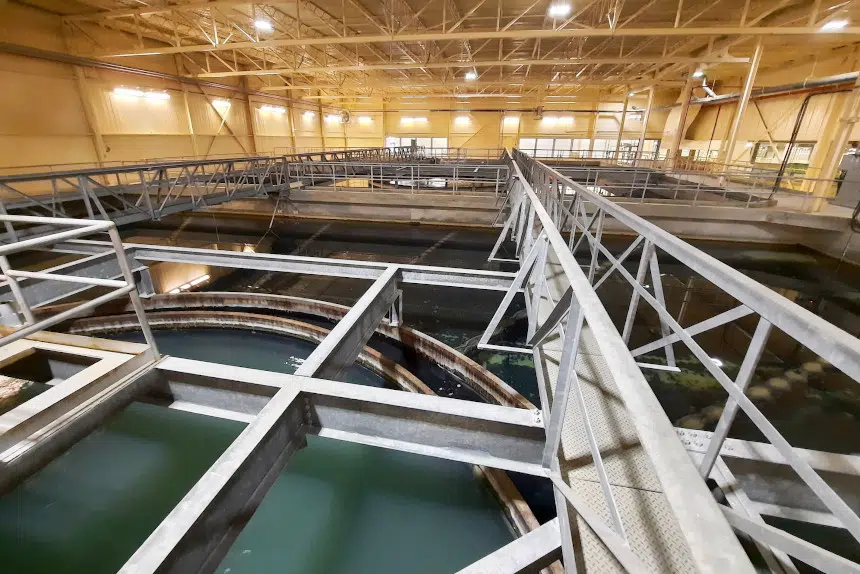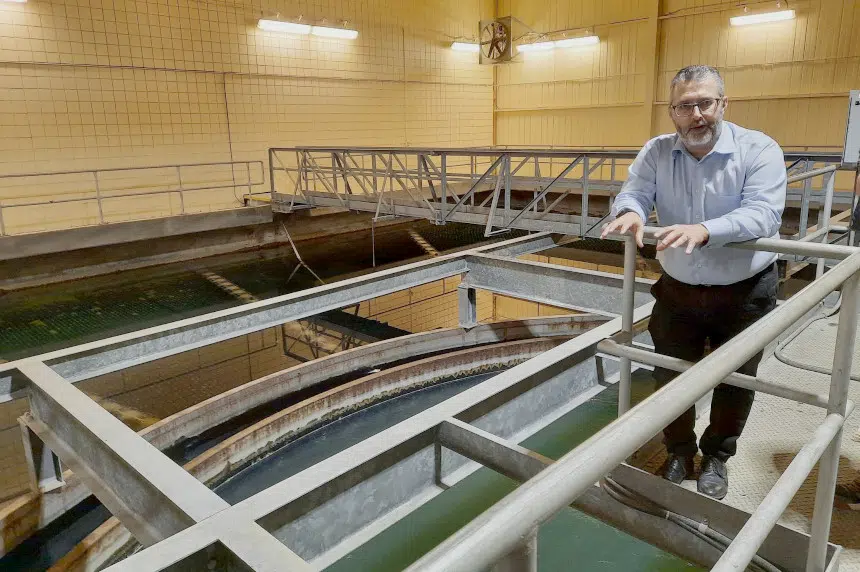There’s a constant hum in the background inside the current Buffalo Pound Water Treatment Plant, no matter where you are.
But in the next three years, the machines making that hum will get bigger and more efficient as the plant gets a top-down renewal.
Buffalo Pound Water Treatment Corporation CEO Ryan Johnson announced Thursday that the construction would start in June for the renewal, which has been in the works for years.
“Careful maintenance of the plant has enabled it to operate exceptionally well, however it is now at the point where significant improvements are required,” said Johnson.
The project couldn’t get the go-ahead until an extra $72.8 million was approved by the cities of Regina and Moose Jaw.
The original cost was pegged at $252.8 million, with large investments from both the federal and provincial governments. The share of Regina and Moose Jaw, a total of $60 million, was approved by both cities in early 2021.
However, in the ensuing year, costs went up. Johnson pointed to supply chain interruptions from the COVID-19 pandemic, climate change, inflation and increased costs in borrowing, and the war in Ukraine driving up energy prices.
City councils in Regina and Moose Jaw recently approved the extra money — $55 million from them and the rest to be covered by the plant’s reserves — so the construction contract was able to go ahead and work will start soon.
In Regina, the increase is expected to result in a two per cent bump in utility rates. When that will be implemented will likely be discussed in the 2023-24 budget deliberations.
“We don’t need to make a profit, we just need to cover our costs to do the work. So what we are charging the cities to do this work is the cost of what water is worth,” said Johnson.

Tanks in which water from Buffalo Pound Lake is separated from sludge are one part of the process at the current Buffalo Pound Water Treatment Plant to get the water clean enough to drink. May 26, 2022 (Lisa Schick/980 CJME)
The Work
The last time the Buffalo Pound Water Treatment Plant went through a renewal was in the ’80s, and Johnson said it’s about time for much of the infrastructure there.
He said plant personnel deal with problems in a lack of redundancy, use of data technology, meeting new regulatory requirements, and challenges in dealing with the water in the lake.
“As the plant ages, it becomes more and more difficult to ensure that we’re able to continue to deliver water of a quality to our customers. This is why the renewal is so very important,” said Johnson.
Johnson said the plant has to make sure there’s water available at all times to customers, so when there are problems, they often aren’t apparent to customers.
But he did point to a time in 2015 when there were serious problems and the cities of Regina and Moose Jaw had to ask people to conserve water.
“We actually had production issues to the point that we were actually down to about 25 per cent capacity. We had major issues for nine to 11 days at the time. And we were actually to the point where we could have depressurized the system because we were forecasting running out of water within hours,” explained Johnson.
It was an issue with the temperature of the water coming in from the lake being too warm and messing with the cleaning processes.
“Those were environmental issues. Those were things that would be attributed to climate change that we could not address no matter what we had here at the time,” said Johnson.
Johnson said officials did keep that incident in mind when designing the new system.
When everything is said and done — expected to be in 2025 plus a two-year process validation — Johnson said people likely won’t notice any difference from their taps, except maybe more consistent water quality.
“As a water treatment plant, we’re not normally at the forefront of people’s minds. You come home, you turn on the tap, water is there, people are happy,” said Johnson.
Johnson said the changes will allow the plant to meet regulatory requirements when it comes to waste discharge — which it’s not right now — so people downstream from the plant could notice a difference.











